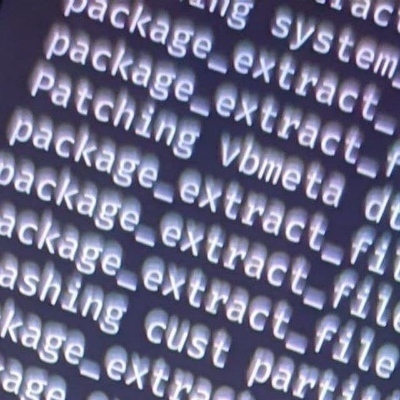- Anonymous Planet - a community contributed online guide to anonymity written for activists, journalists, scientists, lawyers, whistle-blowers, and good people being oppressed, censored, harassed anywhere
- Privacy Guides - a non-profit, socially motivated website that provides information for protecting your data security and privacy
- Extreme Privacy 4th Edition - Michael Bazzell has helped hundreds of celebrities, billionaires, and everyday citizens disappear completely from public view.
- Anonymous Land - a community dedicated to providing anonymity enhancing guides and services
- Prism Break - opt out of global data surveillance programs like prism, xkeyscore and tempora.
- The New Oil [Tor] - the beginner’s guide to data privacy & cybersecurity
- Techlore - a small team educating people about digital rights, privacy, security, digital control, and other important topics to push the world towards a safer internet
- Qubes OS for Anarchists [Tor] - Qubes OS is a security-oriented operating system (OS), which means it is an operating system designed from the ground up to be more difficult to hack. Given that anarchists are regularly targeted for hacking in repressive investigations, Qubes OS is an excellent choice
- GrapheneOS for Anarchists - [Tor] - anarchists should not have phones. if you must use a phone, make it as difficult as possible for an adversary to geotrack it, intercept its messages, or hack it. this means using grapheneos
- Tails for Anarchists [Tor] - tails is an operating system that makes anonymous computer use accessible to everyone. tails is designed to leave no trace of your activity on your computer unless you explicitly configure it to save specific data
- Tails Opsec for Anarchists [Tor] - additional precautions you can take that are relevant to an anarchist threat model - operational security for tails
- Make Your Electronics Tamper-Evident [Tor] - if the police ever have physical access to an electronic device like a laptop, even for five minutes, they can install hardware keyloggers, create images of the storage media, or otherwise trivially compromise it at the hardware, firmware, or software level. one way to minimize this risk is to make it tamper-evident
- Encrypted Messaging for Anarchists [Tor] - This article provides an overview and installation instructions for Tails, Qubes OS, and GrapheneOS encrypted messengers
- Kill the Cop in Your Pocket [Tor] - your phone’s location is tracked at all times, and this data is harvested by private companies, allowing police to bypass laws requiring them to obtain a warrant
- Remove Identifying Metadata From Files [Tor] - metadata is ‘data about data’ or ‘information about information’. in the context of files, this can mean information that is automatically embedded in the file, and this information can be used to deanonymize you
- Defending against Stylometric attacks [Tor] - stylometric fingerprinting analyzes unique writing style (i.e., it uses stylometry) to identify the author of a work. it’s one of the most common techniques for de-anonymization, used by adversaries ranging from trolls to law enforcement
- EFF Surveillance Self-Defense: The Basics - surveillance self-defense is a digital security guide that teaches you how to assess your personal risk from online spying. it can help protect you from surveillance by those who might want to find out your secrets, from petty criminals to nation states
- EFF Surveillance Self-Defense: Tool Guides - step-by-step tutorials to help you install and use handy privacy and security tools
- Into the Crypt - the art of anti-forensics
- Advanced Privacy and Anonymity Using VMs, VPN’s, Tor - a series of guides that explains how to obtain vastly greater freedom, privacy and anonymity through compartmentalization and isolation through nested chains of VPNs and Tor
- How to create anonymous Telegram and Signal accounts without a phone - a guide for using Whonix & Anbox to create anonymous mobile accounts without a phone
- Security Tips & Devices for Digital Nomads - various tools and gadgets for OpSec, written with a preference for practical usability
- Telegram Security Best Practices - quick tips that will help you sleep better at night when using Telegram
read more at: https://git.hackliberty.org/hackliberty.org/Hack-Liberty-Resources/
deleted by creator
deleted
Neat. Thanks.
I don’t agree with all the sources listed on the website, but that’s ok. The information should still be on the list.
What I think most beginners need is a simple way to determine their threat model. Otherwise, someone just stumbling down the rabbit hole might see a list or a site like this as a “to-do list” and drive themselves crazy.
What a superb list! Saved.
I was thinking of writing a guide on how to lead a digitally private and secure “life” since so many bad guides are out there.
I’d like to add that the best private and secure Operating Systems are:
- BSD
- HardenedBSD
- Commercial UNIX (HP-UX, AIX, IRIX)
- Void & Alpine Linux
- Indie Operating Systems
Private Search Engines
Private Browsers
- Lynx
- Librewolf
- Waterfox
- Qutebrowser
- Hardened Firefox (at my repo)
Qubues runs containers yes, but the unique use of a paravirtualized Fedora Linux kernel itself leaves open lots of unique security holes and is therefore extremely hard reviewing the security of it yourself.
GrapheneOS is constantly being showboated by Ed Snowden which is a red flag and I did experience app contamination on it. I would also suggest PostmarketOS. Definite no on CalyxOS.
I’d like to throw in my own Free Open Source, git clone, security repositories for BSD and Firefox available on Bitbucket, Github, and my own self-hosted git server with the latest files. All my software is currently written in Python (my very first Python scripts!) and short so it’s very easy to review.
GrapheneOS is constantly being showboated by Ed Snowden which is a red flag and I did experience app contamination on it.
Can you elaborate on that or link to any information on this?
Could you expand on Graphene (specifically the app contamination you experienced) and Calyx? (Links are fine, just want to add to my reading list).
Any thoughts on Lineage/DivestOS issues/limitations (neither one tries to be like Graphene, though Divest does some interesting stuff, I’m running it without Google because old phone).
Yeah, GetPocket App from Aurora store was able to turn on location on GrapheneOS about 4 months back. After reading the AuroraOSS Store Founder’s profile on Gitlab, I no longer trust AuroraOSS and if you are using GrapheneOS I would advise to vet and install your own apks.
I had a CalyxOS phone whose ROM was hacked which should be impossible outside the factory. Yes, I’m sure and if you had access to the phone, you would also be sure. I’m a huge target whereas most people are not so maybe some high end team was run at me and that would not happen to you.
I’m not competent enough about mobile OS security as of yet to vet mobile OS in detail, but thanks for awareness on Lineage/Divest.
Wow, that’s messed up with Get Pocket. Wonder how it was able to do that?
I’ll take you at your word for the ROM hack, I just can’t see how it could be done if your bootloader is locked and you maintain physical control of the device. We really don’t know what capabilities are out there for state-level actors (for all we know there’s code in the hardware that we simply can’t access, I’ve seen discussion of such things on ROM forums).
I’ll take a look at the Aurora git - thanks for telling me about it.
Good luck.
Private Browsers
(no Chrome based browser)
GrapheneOS is constantly being showboated by Ed Snowden which is a red flag and I did experience app contamination on it.
These are signs I can take you seriously, unlike most people out there. Also, very good recommendations to back it up. Generally I scoff at guide makers that either copypaste whatever info they find (without testing), or have particular tech agendas to push (Big Tech, closed source security).
I have also been thinking of writing a private life guide, since I literally created r/privatelife and c/privatelife. Whatever I recommend is in the form of threat modelling, non-root smartphone fortifications and Linux computing, but I have been thinking of it for atleast a year, trying to formulate something concrete in my head.
I have never heard of Grasp before.
They have cloudflare set to ‘go away’ so it refuses to load in Mull.
Cromite works.
Blacklight says it sends info to Google. Firewall logs confirm this.
https://themarkup.org/blacklight?url=usegrasp.com%2F&device=mobile&location=us.
Am I missing something?
ETA: this is a paid search. I am fine with that, but I am not paying for search and getting Google tracking.
The Blacklight results come up exceptional compartively, 1 tracker, 1 cookie, and it’s easy to block Google. It doesn’t do that over accounts or sessions however, and that is a quite positive attribute. Thanks for the awareness on that though, for everyone. I always advise to use a blocking browser. I guess overall I see the best-in-class results to be worth it every once in a while.
You mentioned Cromite for Android, isn’t that conflicting? Cloudflare is the #1 MITM privacy destroyer so that’s great too. I’ll have to check under VPN.
Could I get your recommendation for what you would advise for a private search engine that has acceptable results?
Good info overall, thanks for this comment.
I’m not sure what you mean by this
‘You mentioned Cromite for Android, isn’t that conflicting?’
For search I use Searx, https://4get.ca/, and https://trystract.com/
hi wravoc, good to see you again and i must say your git page is looking sweeet
Hah, I didn’t even realize this was you! Great job here, although between us you already know what I think about what it takes to secure TOR ;)
Thanks for the compliment, I had to hack around bad Gogs docs for hours to implement that.
Why use Gogs when you could use Forgejo or Gitea?
Is there any reason you mentioned that specific searx instance?
This is like “how to get on a watchlist” 101. Thanks for the info!
You’re now on at least one watchlist for knowing what puts you on a watchlist.
Good stuff









